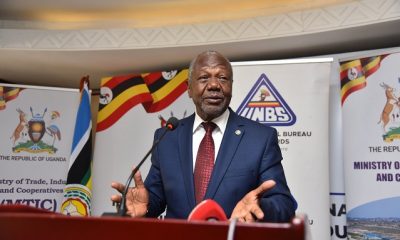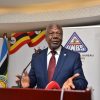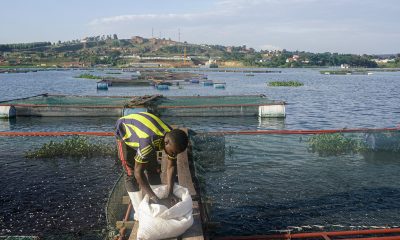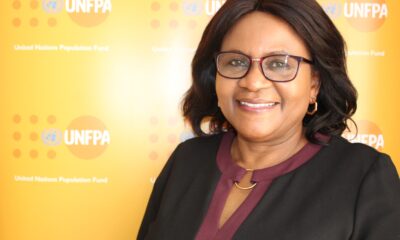Analysis
Uganda needs accurate, complete accounting to track money leakages
Britain’s Director of Public Sector of the Institute of Chartered Accountants in England and Wales (ICAEW), Campbell was Deputy Director for Government Financial Reporting, responsible for financial reporting policy and setting the accounting framework for the Government in the United Kingdom. He has also been Group Chief Accountant at the Ministry of Defence and Director at the National Audit Office. Qualifying as an ICAEW Chartered Accountant in 1998, he has also worked in a series of financial management roles in the private sector including KPMG and RBS. In an exclusive interview to discuss matters concerning Public Finance Management, a key component for Uganda’s development, he talks with The Sunrise’s Gabriel Buule.
Qn: Despite the enactment of a number of public finance management reforms since the 1990’s, Uganda continues to face many scandalous cases of misappropriation of public funds. What steps would you advise the Government of Uganda to take to curb the vice of corruption altogether?
Ans: The single most important thing that any government can do to address corruption, whether in the present or the future, is to increase transparency by publishing up-to-date information, which clearly and concisely presents how public funds have been used and what benefits these have resulted in for the society. This must be backed up by a strong independent audit function. In so doing, the Government makes it much more difficult, if not impossible, for individuals, who seek to engage in corrupt activities.
Qn: Corruption in Uganda, and much of Africa, continues to be a major source of leakage of tax payers’ money. Is it a failure of accountants to track the money?
Ans: That’s a big question. It’s a combination of factors. It is certainly hard to track the money without accurate and complete accounting records. Therefore, implementing improvements to records and systems will make corruption harder; and there is a role for the accountancy profession in driving those types of reforms. However, to tackle corruption effectively, a system-wide approach is required with a clear and comprehensive system of control over public expenditure backed up by rigorous professional audit. There’s a responsibility for everybody, from accountants to policy makers to civil servants with budgetary responsibility, in making sure an effective system of control works and there is follow-up and consequences for people who engage in corrupt activity.
Qn: What are the major challenges to the accounting profession in Africa?
Ans: Accountancy is about trust. It is about trusting the numbers and the professional who created them. As such, the accounting professionals who create these numbers must operate, and be held to, internationally-recognized quality and ethical standards. Moreover, and related to this point, the policies which underpin the accounting profession must create the rigorous, stable and trusted environment in which these professionals operate. As such, the three main challenges to the accounting profession in Africa are:
* Improving quality standards in the profession;
* Improving accounting records to be complete, accurate and reliable; and,
* Improving awareness among the policy makers of the vital role played by professional accountants in creating the conditions for economic growth.
Qn: Africa is undertaking tremendous infrastructural projects. However, many of these projects, we hear, are twice or thrice as expensive compared to other countries. Is this a challenge to accountants and how can you, as accountants, help to prevent these cost overruns?
Ans: A good accountant will develop accurate and realistic forecasts of infrastructure project-t spending based on data from comparable projects; and will advise policy makers on what the project should cost. Such forecasts should include: ‘best case’, ‘worst case’ and ‘most realistic’ scenarios, to enable the decision-makers to have as clear a presentation as possible of the budget implications. These scenarios must also include risks and potential changes to the operating environment which may impact budgets, whether positively or negatively.
The second thing a good accountant will do is also undertake rigorous cost control of the project during its development and construction phases to ensure that the project is built to budget, specification, and on time. The accountants should then ensure that effective cost control is maintained throughout the operating phase, as this will drive efficient management of the ongoing costs as the project remains ‘live’, and will immediately identify any risks, potential overspend, and scope for savings.
The third thing a good accountant will do is review the project after its development phase, to understand what risks occurred, how they were dealt with, and how accurate the original forecast was to ensure lessons are learned and forecasting continues to improve for future projects.
Qn: What does public finance management generally entail?
Ans: At its highest level public finance management entails ensuring that public funds are spent in accordance with the public good; that this spending represents value for money and that the continued expenditure is sustainable within realistic projections of government revenue. This also requires good record-keeping to ensure accountability to tax payers, effective risk management, and, critically, that future spending plans can be financed wisely, which then promotes the creation of a stable economy.
Comments



















